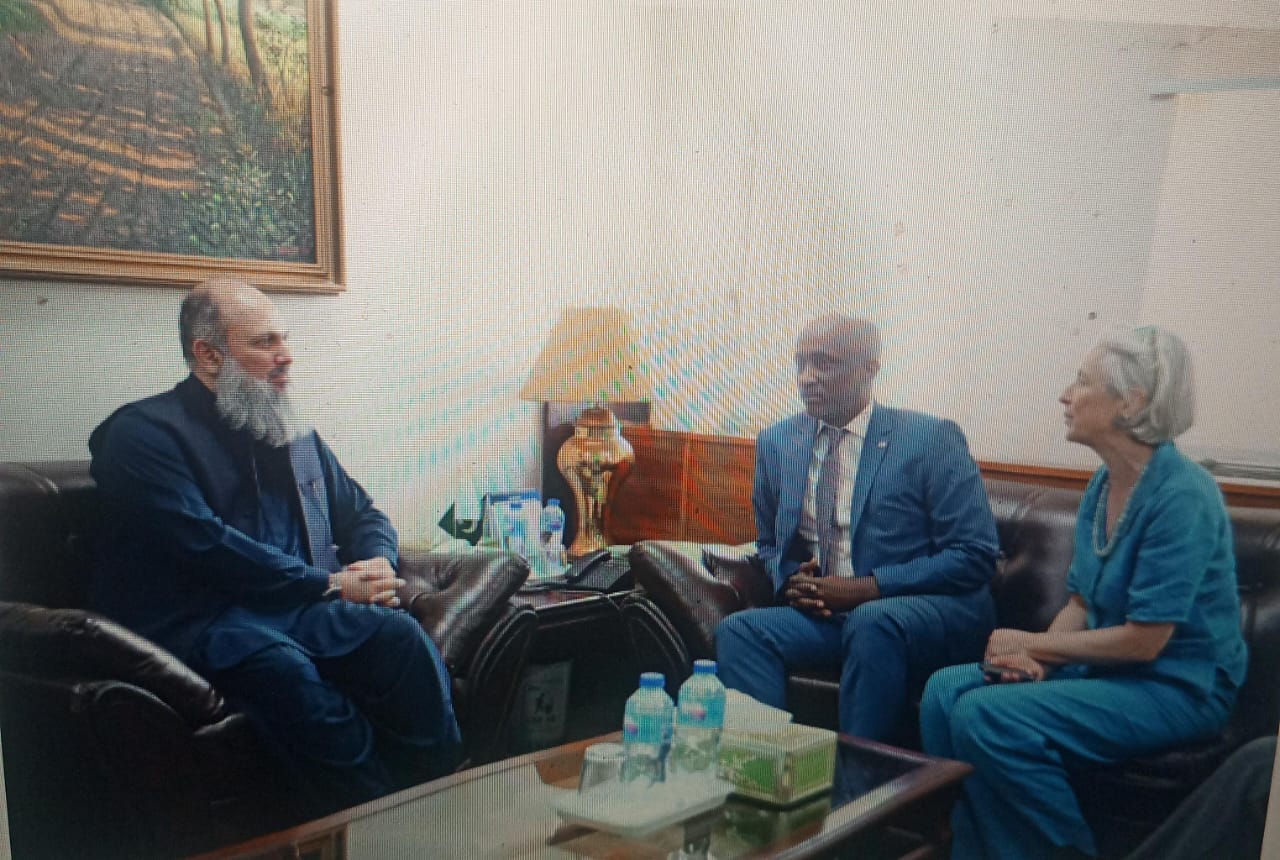WNAM REPORT: Federal Minister for Commerce, Jam Kamal Khan, met with a delegation led by Mr. David Laborde, Director of the Agri-Food Economics Division, to discuss collaborative efforts on agri-food system reforms in Pakistan.
The meeting was part of a broader UN-supported initiative aimed at aligning trade policies with national nutrition goals, improving food system sustainability, and strengthening Pakistan’s agricultural export potential.
The delegation briefed the Minister on the ongoing efforts under the UN Joint Front to enhance access to healthy diets by identifying gaps and surpluses in food production across Pakistan.
Utilizing existing household and national data, the initiative seeks to develop practical, budget-conscious policy recommendations within a nine-month timeframe.
These recommendations aim to improve public health, employment, trade, and environmental outcomes, with particular attention to the diverse dietary needs and production conditions across provinces.
Mr. Laborde highlighted the importance of using data-driven modeling to support evidence-based policymaking.
He stressed that poor dietary choices—especially the growing reliance on processed, high-fat foods—were contributing to health issues and reduced productivity. He noted the need for integrated approaches that address both food supply and consumer behavior.
Minister Jam Kamal Khan welcomed the initiative and underscored the growing nutrition challenges in Pakistan.
Jam Kamal pointed out that the problem was not just food availability, but the lack of awareness and access to nutritious options, especially among children and in rural communities.
The Minister emphasized the importance of reforms that promote healthier diets, while also ensuring sustainability and trade competitiveness.
The delegation and the Minister also reviewed ongoing collaboration on Geographical Indications (GIs), particularly the registration and promotion of regional products like Chilghoza Pine Nuts from Shirani, Chitral, Waziristan, and Diamer.
The FAO has facilitated multiple national workshops and field visits in support of GI development, and both parties acknowledged the potential of GI-certified products to boost rural incomes and enhance Pakistan’s international branding.
The Minister stressed the importance of improving national compliance standards to meet WTO requirements, noting that the lack of regulatory enforcement allows informal markets to undermine the formal sector.
He cited the Green Pakistan Initiative as an example, where high taxes reduced the attractiveness of corporate farming investments.
To move forward, the meeting concluded with agreement on establishing a steering committee and technical working groups to ensure coordination across federal and provincial levels.
Both sides reaffirmed their commitment to a phased and collaborative approach—starting with data collection and analysis, and leading to actionable policy reforms that support food security, public health, and trade growth.
This meeting marked a significant step in Pakistan’s journey toward creating a resilient, inclusive, and internationally competitive agri-food system—with support from the UN and strong leadership at the national level.


